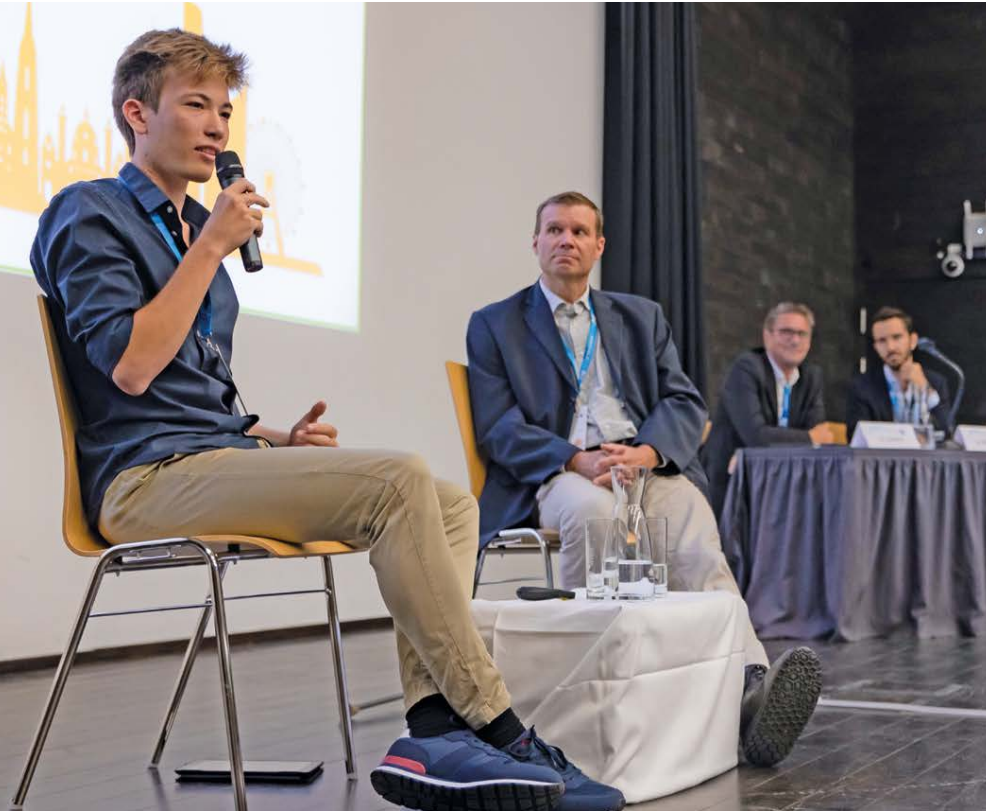Avoid sepsis – save lives!
In Austria, more people die from sepsis than from “common” diseases such as strokes, heart attacks or lung cancer. Despite this, apart from intensive care medicine, sepsis is not talked about enough. There is a need for education, especially before and after an emergency. This is because the early signs of sepsis are often overlooked and long-term consequences are still poorly researched. The LBI Trauma is committed to improving understanding of the disease on several fronts.
Sepsis, also known as blood poisoning, is the most serious complication of an infection. It occurs when the immune system can no longer locally contain an infection and its consequences. During sepsis, the body’s own defence reaction against a pathogen also damages its own tissue and organs. If left untreated, sepsis is always fatal.
At the congress of the European Shock Society (ESS; www.europeanshocksociety.org) in Vienna, organised by the AUVA and the Ludwig Boltzmann Institute for Traumatology, a survivor tells his story: “I felt very unwell, a condition that later turned out to be pneumonia but was not diagnosed as such. I was overcome by a feeling that in retrospect could be described as ‘the feeling of dying’, one of the symptoms of septicaemia.”
The survivor was admitted to hospital, where he was placed in an induced coma and had to be ventilated with extracorporeal lung support. Only after he woke up a few weeks later did he realise that he had just survived sepsis.
The survivor was lucky to be able to tell his story at the congress in Vienna. Lucky that his situation was recognised as an emergency. And lucky to have ended up in a hospital with excellent equipment and a lot of experience in the field of sepsis. He suffered no long-term damage from his illness. This is not always the case.
Surviving sepsis does not always mean returning to normal life. In septic shock, our body reaches its limits. The extreme immune reaction not only fights the pathogens, but also damages nerve tissue and organs such as the lungs, heart and kidneys, throwing the immune system off balance for a long time. Even if the patient ultimately escapes death through multiple organ failure, damage can remain.
In Germany, the Sepsis Foundation collects testimonials. Numerous stories can be found on the foundation’s website, many of which do not end with discharge from hospital. Survivors report persistent fatigue, sensory disorders, cardiac and renal dysfunction and flare-ups of sepsis. Figures back up these reports. 20 per cent of sepsis survivors need to be hospitalised again within 30 days of discharge from intensive care, and a further 30 per cent of survivors within a year. Three quarters of survivors develop a complex clinical picture called PICS (short for Persistent Inflammation, Immunosuppression, and Catabolism Syndrome, i.e. a permanent disorder of inflammatory processes, immune defence and metabolism).
A new project has been dedicated to this still little-described clinical picture. Under the name (and motto) “BEATsepsis”, 10 institutions in 6 European countries have joined forces to advance the understanding of the long-term consequences of sepsis. The close collaboration between clinical and research organisations, despite geographical borders, enables findings to be obtained as close to practice as possible. A research team led by Priv.-Doz. Dr Osuchowski at the LBI Trauma represents Austria in the project. Years of excellence in the field of sepsis research, including three presidencies of the European Shock Society over the last 20 years, are now being utilised by the institute in the identification of inflammatory markers in the blood of sepsis survivors.
But BEATsepsis does not only want to tackle the problem at the molecular level. It is also the declared aim of the partners, particularly the LBI Trauma, which is the project’s communication lead, to raise awareness of sepsis and its consequences. This is because there is often a lack of awareness of the disease not only among patients, but also among medical staff outside of large medical centres. Expertise and experience with sepsis is mostly found in the field of intensive care medicine. However, like any long-term illness, PICS is mainly treated in general practice. There are no specialised contact points or patient organisations in Austria.
Marcin Osuchowski, who organised the congress in Vienna as President of the European Shock Society, describes the appearance of the sepsis survivors as the most intense experience of the entire programme. The fact that patients are on stage at scientific congresses is something that doesn’t happen anywhere else. This made it all the more important for Dr Osuchowski. After all, at the end of all research endeavours are people with their own stories before, during and after sepsis. People who survive thanks to the co-operation of many people in the hospital. People whose survival we are researching together. Numbers and data are not enough to understand the complexity and uniqueness of their stories.
